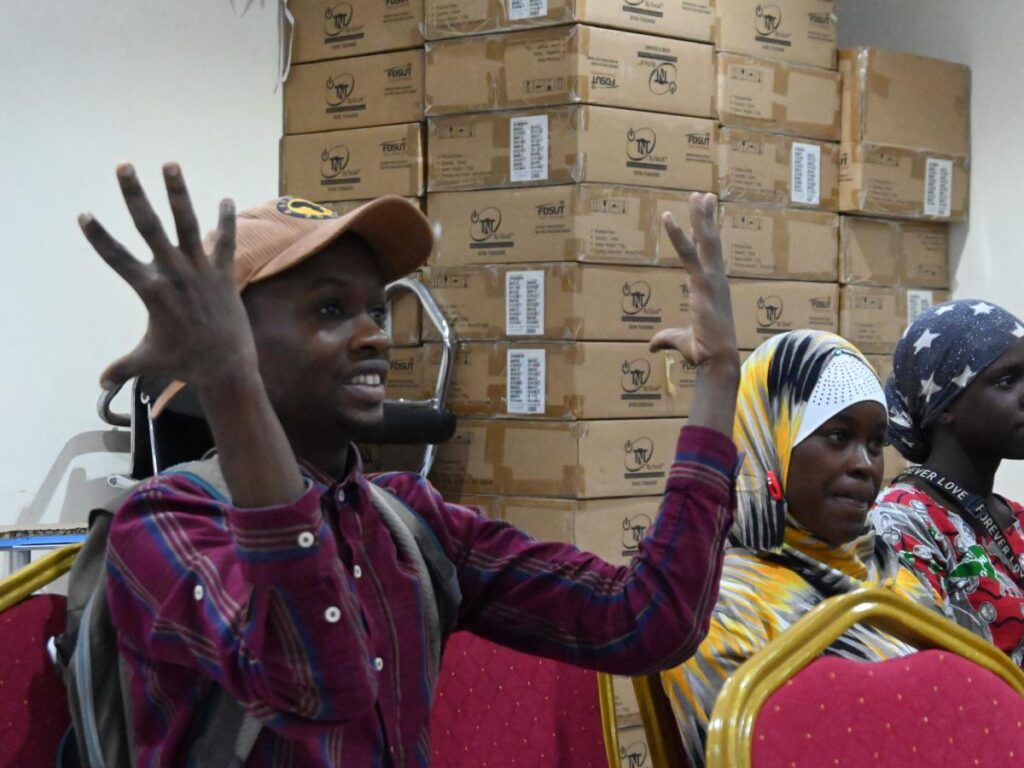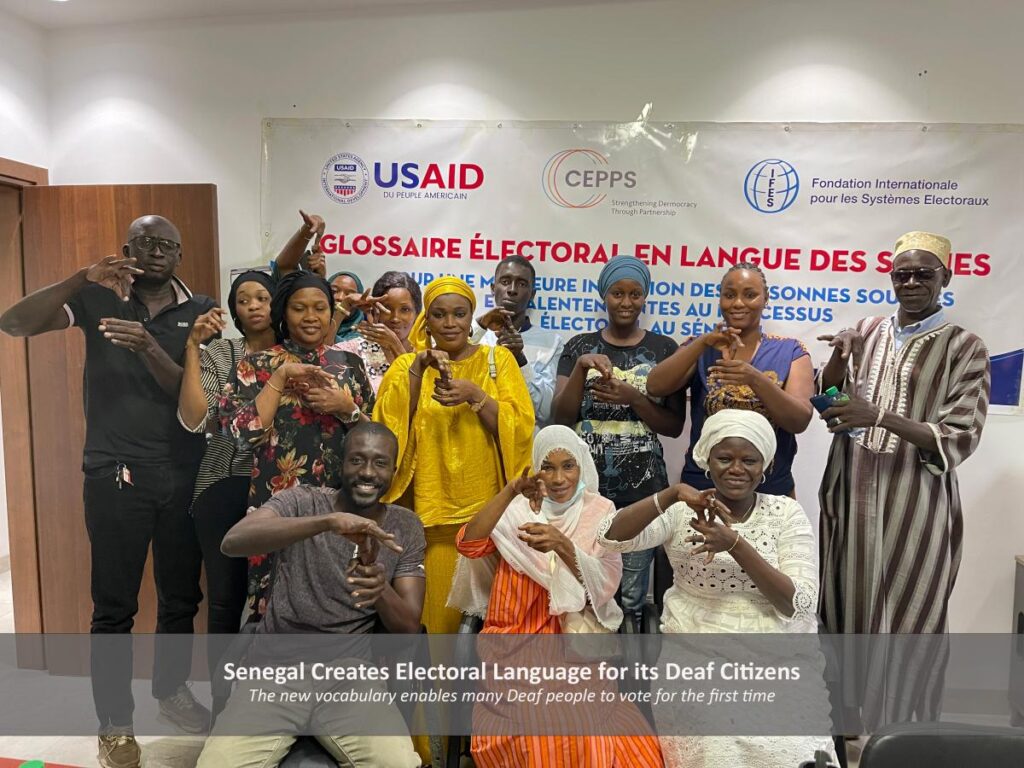Senegal has a proud history as one of the most successful models of democracy in Africa. Nevertheless, one sector of the population has traditionally been excluded from the process — the Deaf community.
“Some of us don’t even know the name of the president,” says Aminata Dia, a member of the Pikine Association of Deaf People located in the capital city of Dakar.
The biggest barrier to electoral participation by the Deaf community is the lack of a common language. Citizens need to know how, when, and why to register and vote. Such information relies on a vocabulary that becomes familiar through voter education, including such terms as: citizen, ballot, candidate, electoral campaign, voter registry, and indelible ink.
Government and civil society have a responsibility to educate the public on these concepts — but they do not always consider the availability of information for persons with disabilities. In Senegal, people who rely upon sign language to communicate have largely been shut out of conversations related to elections and politics due to the lack of an established vocabulary on the subject.
As part of USAID’s Nietti Elections program in Senegal, implemented by the Consortium for Elections and Political Process Strengthening (CEPPS), and the International Foundation for Electoral Systems (IFES), USAID is working to bridge the communications gap so that voter education is more accessible to persons with disabilities.
CEPPS/IFES gathered representatives from the Deaf community, Senegalese legal circles, and the country’s General Directorate for Elections (DGE) to build a vocabulary that would educate sign language users about electoral processes and allow them to engage in discussions and debates around electoral issues.
The first test of the new signing vocabulary: parliamentary elections for all 165 seats in the National Assembly in the summer of 2022.
Participants agreed on a list of 105 key electoral terms — ranging from legal principles to terms related to election administration, candidature, and voting — and designed by consensus the signs for those concepts.
With the terms and signs agreed upon, CEPPS/IFES then produced a video featuring sign language users demonstrating their use. Feedback was overwhelmingly positive.
Before watching the video, I didn’t know that the vote was secret,” said Papa Alioune Sow, former president of the National Federation of Deaf Organizations in Senegal (FNOSS).
“This is the first time that an election awareness campaign has been sensitive to the information needs of Deaf people. I am very happy that someone thought of us for a change,” added Séga Gueye, a member of the association representing the Deaf people of Rufisque.
CEPPS/IFES also organized a series of six workshops to present the electoral lexicon to members of the Deaf community. With the motto “my sign, my voice” (mon signe ma voix), the workshops included a voting simulation to help participants understand the process and avoid mistakes on election day.
“I had no difficulty voting on the day of the legislative elections thanks to the dissemination workshop,” said Rama Ndiaye, a member of FNOSS.

A key ingredient to the new lexicon’s success was the enthusiastic backing of Senegal’s electoral authorities. Following the development of the lexicon, the DGE decided, for the first time, to include sign language interpretation in televised voter education messages. Video spots on voter card distribution and the voting process aired on public and private TV nationwide and on social networks in the weeks leading to Election Day last year.
The development of the lexicon is of huge consequence — both practically and symbolically — to increasing democracy and including people who may feel invisible in their society. In February of this year, Senegal’s Deaf community will be able to participate in a presidential election for the first time en masse.
The initiative is having wide and lasting consequences in deepening and strengthening Senegal’s successful democracy. Mamadou Bocar Niane, a DGE-embedded expert in charge of training, echoes that belief.
“The lexicon represents a colossal progress for our country because it is a first,” he says. “We [the DGE] paved the road, and now the other institutions will follow.”

